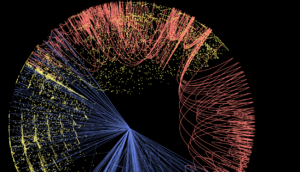post
December 30, 2013
Proactive Recognition: Reading Your Customers’ Minds
One of the reasons I love Google and I always use Chrome is because they absolutely rock at predicting what I want. I type “can grow bl“, and suddenly what I want – “can blueberries grow in shade” pops up, saving me the effort of having to type a single letter more.
This is how business-customer communications should be. Good customer service should try to predict what I want when I call or text in. We call it Proactive Recognition, the emphasis being on Proactive, because good customer service means the company is initiating the effort to find out what the customer wants.
For example, if I’m calling your automotive repair shop because you’re fixing my car, your system should start the call with “Hi Jeremy, are you calling about the status of your Honda Element?”
Even better would be “Hi Jeremy, we are currently waiting on parts for your Honda Element. Would you like to talk to someone about it?” This not only recognizes what I’m calling about, but also gives me a bit of information – which could be enough for me.
Let’s go even further: your shop automatically texts me with status updates: “Jeremy, we just received all the parts for your Honda Element. We hope to have it fixed in the next 1-2 business days.”
Sounds like crazy talk, I know, but some phone and text systems play well with other systems, allowing a company to create flows like those above. To throw a little jargon at you, systems like OneReach allow users to add API integrations to their voice and text flows and then change what the caller hears/reads accordingly. It’s pretty sweet.
Think about all the uses for this and how you – as a customer – would appreciate them:
- Your favorite pizza joint: “Hi Maurice, are you calling to order your usual, a large Hawaiian pizza?“
- Your doctor’s office: “Hello Jane, you have an appointment with Dr. Professional tomorrow at 10:45 AM.“
- Your internet service provider: “Hi Dave, we’d like to apologize for charging you such an ungodly amount of money this month…” – well, we can wish, can’t we?
Stay up to date
Latest Articles


